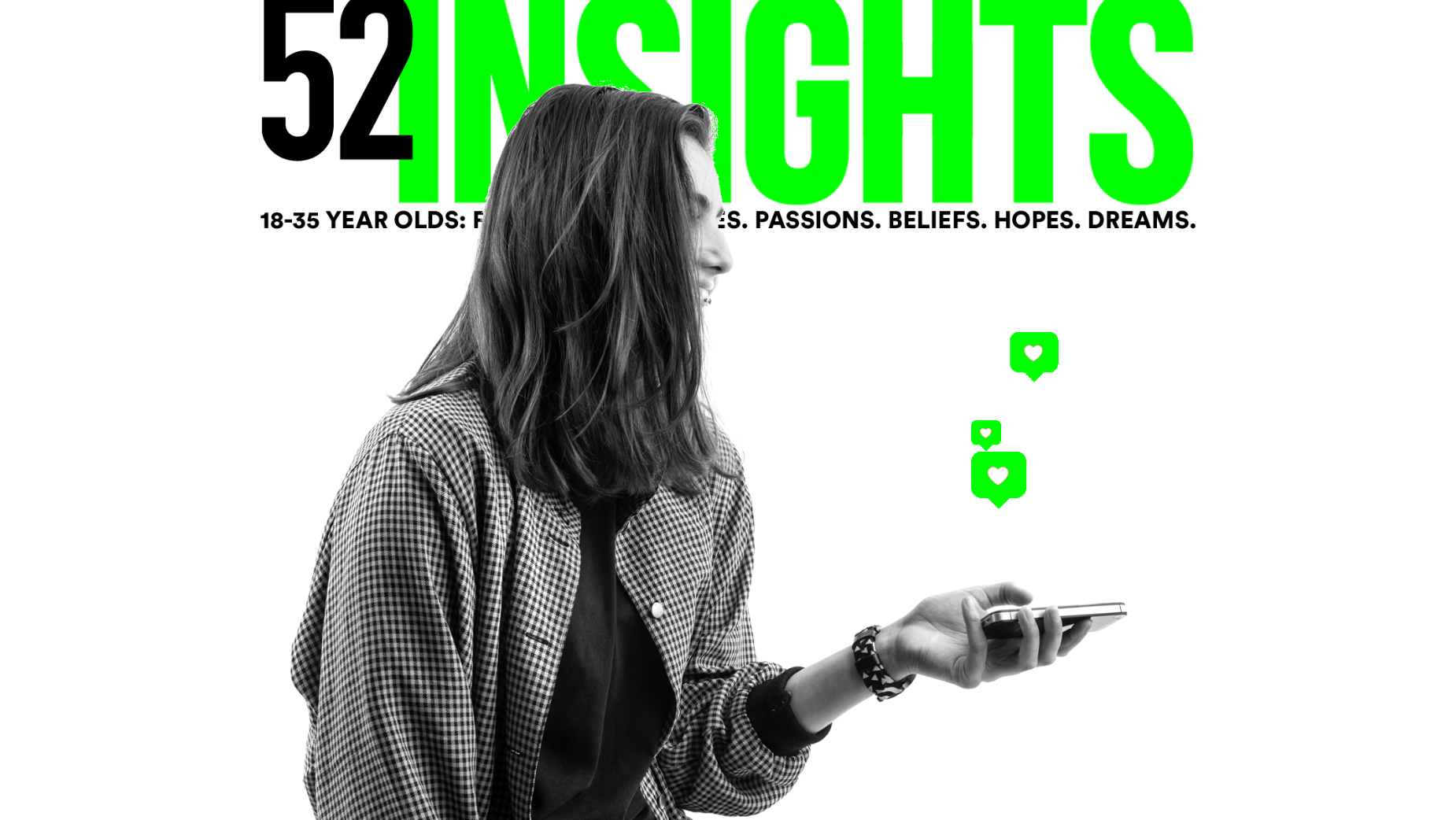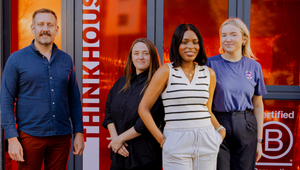
TikTok Trends: Underconsumption Core

“The trend of “underconsumption core” romanticises buying and using only what you need. Yes, being normal is now trending. Experts say it’s a response to a period of economic hardship.” - Remy Tumin, NY Times, July ‘24
We saw “de-influencing” go viral last year - a term that describes when someone tells their followers on social media not to buy particular items, or to buy fewer things generally. Now, the 2024 evolution away from influencer culture has manifested in ‘underconsumption core.’ This week’s 52INSIGHTS explores what the latest “underconsumption” trend is, and why it’s speaking to younger generations.
THE TREND EXPLAINED
TikTok is a hotspot for trends and styles, often called "cores." In recent years, we've seen many of these come and go, from "cottagecore," which celebrates all things quaint and rural, to "plazacore," a sleek, preppy style inspired by New York's elite. These trends usually have a very short lifespan, with new, aspirational looks constantly popping up on the app.
But what happens when your cottagecore sunhat no longer goes with your plazacore loafers?! It might sound silly, but this is exactly what happened with the viral "strawberry midi dress" by designer Lirika Matoshi, a key piece in 2020's "fairycore" trend. The dress skyrocketed in popularity, with fans rushing to buy it, and copycat versions quickly appearing on fast-fashion sites like Shein and Temu. However, just as fast as the dress became a sensation, it faded away, with many users admitting they wore it only a couple of times before it felt outdated. These microtrends are so fleeting that people can't keep up—and increasingly, they don't want to.
Gen Z’s latest version of minimalism, underconsumption, is about living more simply and having less. The trending TikTok videos incorporate things like no buy challenges and “quality over quantity.” Many content creators also reference economic hardship and poverty, a central theme driving the conversation.
Examples of underconsumption core include using every last bit of a beauty product, using refillable packaging, maintaining small capsule wardrobes and not buying any new clothing. It is about making the most of the things you already own, and resisting the temptation/persuasion that exists to participate in unnecessary purchases…AKA common sense/normal living.
Like with any trend, there are also many creators putting a spin on (or rejecting) the concept by making fun of how unrealistic “underconsumption core” feels to them - highlighting just how embedded cultures of overconsumption are. The subject of consumption has more longevity than most passing trends.
WHY IS IT CATCHING ON?
The driving forces behind underconsumption core are multifaceted, reflecting the complex realities of today's world (WEF report a ‘youth happiness decline’ worldwide):
- Financial and economic pressures are a significant factor, particularly for younger generations who are grappling with immense challenges. Economic strain makes the idea of consuming less and making the most of what one already owns not just appealing but necessary.
- A growing environmental consciousness, especially among younger people, who are increasingly aware of the impact their consumption habits have on the planet (Earth Overshoot Day was on August 1st this year). This heightened awareness drives them to adopt a sustainability mindset, prioritising long-term environmental health over short-term consumer gratification.
- Awareness and mindfulness are also central to the underconsumption core philosophy. By rethinking their consumption habits, individuals become more mindful of their purchasing decisions, leading to more intentional and thoughtful consumption. This shift in mindset is a powerful antidote to the pervasive consumerist culture that dominates social media, offering a more balanced and sustainable approach to living.
- Organisational & mental health benefits are also clear. With fewer possessions, it becomes easier to stay organised, reducing the clutter that often leads to stress and anxiety. Mentally, the practice of underconsumption can alleviate the pressure to constantly acquire new things, fostering a better sense of contentment and wellbeing.
THE YOUTH TAKE: GOOD & BAD?
Some creators are reflecting on the trend as a potential catalyst for greater freedom: “I think underconsumption core could be such a huge catalyst for change and freedom. By mindfully consuming, we were able to pay off debt, save, buy a house, quit jobs we didn’t like, start businesses… I love this trend…It normalises being a regular person… We get on social media and and we’re constantly being sold new things all the time. But most of us are not living that way. Under-consuming or mindfully consuming has allowed me to create a life for myself that feels a lot more relaxing and a lot more free than I would have if I had stuck with my office job and spent my money every day on my lunch break…It is possible to create a life where you feel a little bit more flexibility.” @laurenleavellfit
Others see it as progress, but are wary of its shortcomings. Young Environmentalist & Creative ‘Queer Brown Vegan’ explains why they both ‘love and hate’ the trend: “Underconsumption is basically repackaging poverty lifestyles into sustainability…I think it’s important that we show the general social media user that we cannot live in an over-consumerist society that is very materialistic and draining our ecological and our own resources…[all of these trends - minimalism etc] have failed to call out capitalism. It is time to repurpose our things, but systemic action is still lacking.”
Despite the fleeting nature of TikTok trends, “underconsumption core” as an evolution of minimalism and de-influencing is certainly symptomatic of a deeper, ongoing cultural shift as young people rewrite the rules of consumption. Plenty of brands have tapped into this sentiment with huge success- from Yeti marketing its products as lifelong investments ‘Built for Generations’ (launched in 2020) to Lego’s ‘Green Instructions’ guiding kids on how to repurpose existing model sets. Carhartt has introduced a resale and trade-in program, encouraging customers to buy less by extending the life of their products. This strategy doesn’t just push sustainability; it taps into a rising desire among young people to consume more thoughtfully and deliberately.
BRAND TAKEOUTS
Rethink Culture: Youth audiences are grasping for ways to have more control and agency over their lives. These trends see youth put a positive (and yes, sometimes satirical) spin on very real societal and cultural challenges. Empowering this generation with greater choice, value and meaning in purchasing decisions will be rewarded. Think less ‘throwaway’ and more ‘how to stay.’
Prepare to Challenge Growth Mindsets: Terms like The ‘Frugal’ Economy and ‘Type 2 Growth’ (which is about betterment over adding ‘more’ - Kevin Kelly) are reflective of a broader cultural shift around how we can do or build better with less. Businesses and brands are being faced with the reality of this challenge - not only in meeting existing Net Zero commitments, but in future-proofing a customer base. The opportunity with this shift in redefining consumption is described by Zoe Scaman as one from seeing ‘growth as scale’ to understanding ‘growth as value’: “For brands, this means it’s time to shift the focus from simply expanding reach to deepening quality. It’s about enriching customer experiences, fostering loyalty, and creating value that resonates on a deeper level.”















